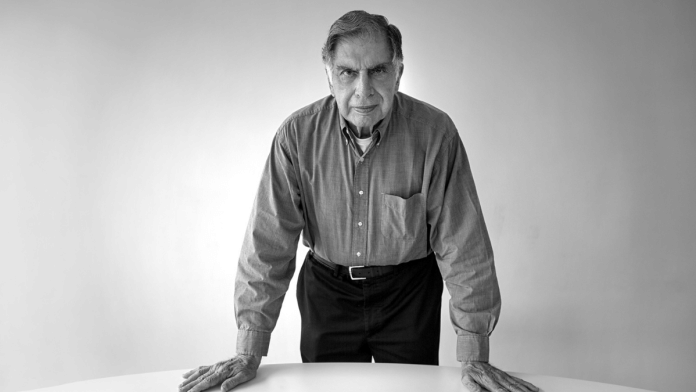Ratan Tata was an institution for Mumbai, Maharashtra, and India. He was someone who represented the best of the city, state, and country globally. His legacy will be remembered as someone who transcended simply being a corporate, philanthropic, and policy icon. Few people have managed to transcend these boundaries, for example, boxer Muhammad Ali — it’s very tough to pigeonhole him into a category as only a boxer or an athlete. He was an activist, political leader, and entertainer. Tata, in many ways, was like that. He transcended any categorisation and cut across many different verticals.
Today, more and more Indian companies are truly becoming multinational companies, going out and setting up offices and production manufacturing facilities around the world, and competing with global companies in their own markets. One of the earliest companies to do so was the Tata Group under Ratan’s leadership—it went out and acquired companies like Land Rover and others. His vision was truly global, not afraid to go overseas and take on the best in business. That sparked a huge wave and gave confidence to entrepreneurs and industrial houses in India — that we, too, can go out, compete, and succeed.
The quintessential Ratan Tata
Ratan Tata was naturally very low-key; one who believed in one-on-one meetings and not having a large presence in the media. His impact went beyond his business, which can certainly be felt and seen in Maharashtra, Jharkhand, rural and urban India. He showed how leadership and working styles should evolve.
I’m a quintessential South Mumbaikar; my office is next door to Bombay House. Ratan Tata was an integral part of the South Mumbai community, yet very global.
I met Ratan a few times. I see the legacy he’s left behind in people he mentored and nurtured, many of whom are still serving in Tata Group and various other companies. That, to me, is the greatest aspect of his legacy.
If you study the lives, business decisions, and policy views of individuals like Ratan Tata, Rahul Bajaj, or Dhirubhai Ambani, you understand what India was going through at different periods in its history. You see what happened before and after liberalisation. These people were weathervanes for understanding which way India was going and should go — they were also policymakers and politicians. They knew what India should do to reform things and improve.
Consider the controversy about the Nano plant in West Bengal. This was a precursor to the fact that India had given up on manufacturing. Most of the country had just forgotten about manufacturing as they do in the United States today. Manufacturing had become irrelevant—we cannot compete with China; we don’t really respect people who want to set up plants. And today, it’s all about ‘bring manufacturing plants to my city, to my state, to my country’, ‘I want to create manufacturing jobs; that’s the only way we can compete’, ‘I want to move supply chains away from competing countries’.
So, when you look back through Ratan Tatas, Ambanis, and many others, you see what India was doing wrong and where it should have been ahead.
This is where you see India’s economic-political history, which is very closely linked to the life of an industrialist who survived that long.
Also read: ‘Certainly not the home of India’s richest conglomerate head’ – How Ratan Tata lives
Corporate India has learnt this now
Groups like the Tata Group had a huge philanthropic side and were one of the earliest to have the tradition of giving. Today, corporate India is certainly doing a good job in terms of contributing to society. It has come of age and understands that to make profits, you have to help alleviate poverty. People understand India is a stable democracy and you have to help reduce inequalities of income. You have to empower people.
But certainly, the Tata Group — and this even preceded Ratan Tata’s legacy — was certainly ahead of the curve in that area. It understood one thing at a very early point in its evolution: We are India, India is ours, and we can’t disassociate ourselves from India. That they’re not just some company with shareholders that operates in India—a little island in the middle of this country.
That is Tata Group’s legacy.
Very few business leaders in India today give a lot of their time—not just money—to social causes. Sometimes, solving a major societal problem can even be good for business. People have understood that now very well. A paradigm shift has occurred — earlier, people would think solving society’s problems is not my concern; I just want to maximise profit. Now, both are closely related to each other. If I’m working to mitigate climate change, it can be good for business also. That has now dawned on corporate India and the world.
Milind Deora is Member of Parliament in the Rajya Sabha. Views are personal.






